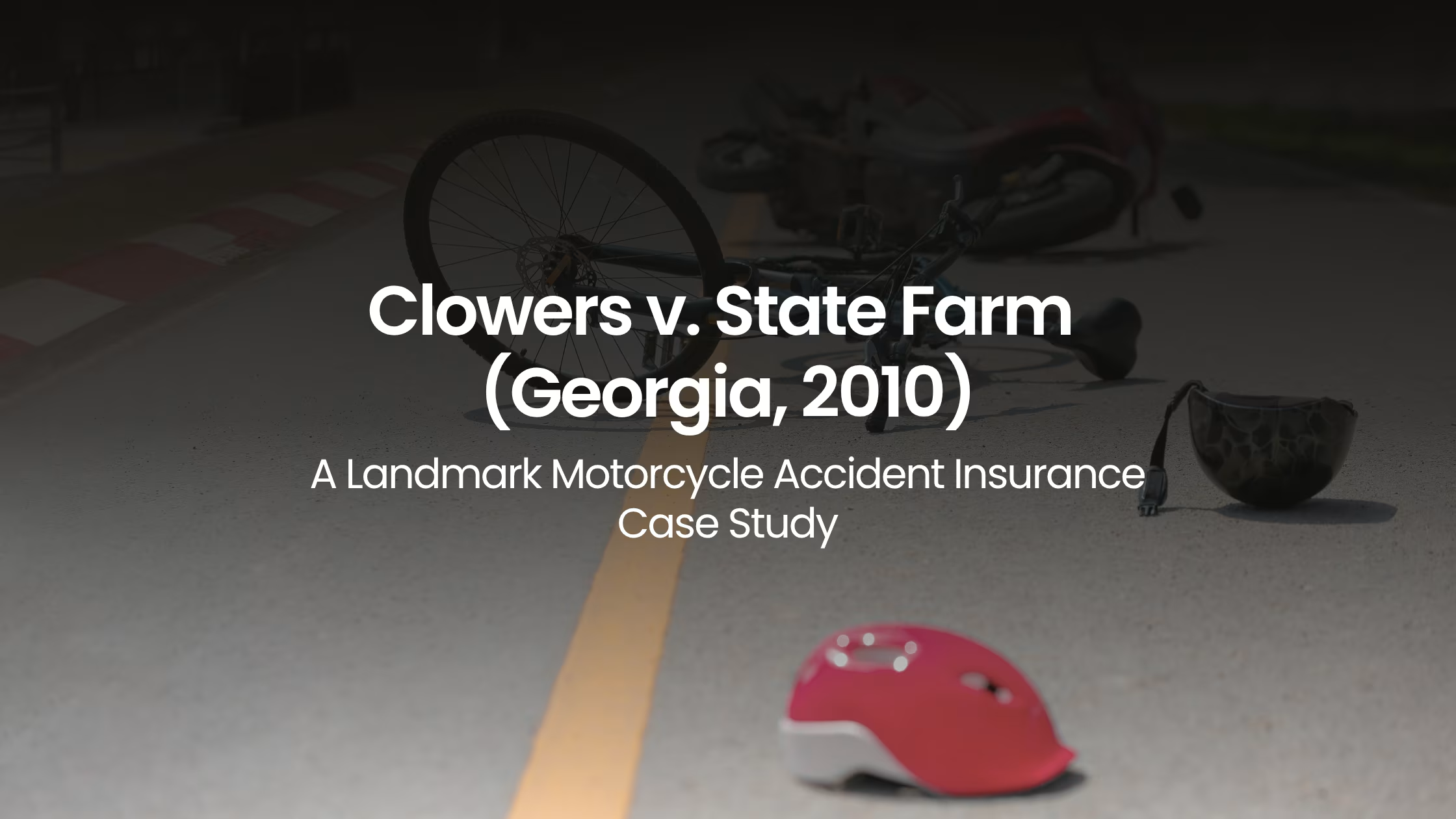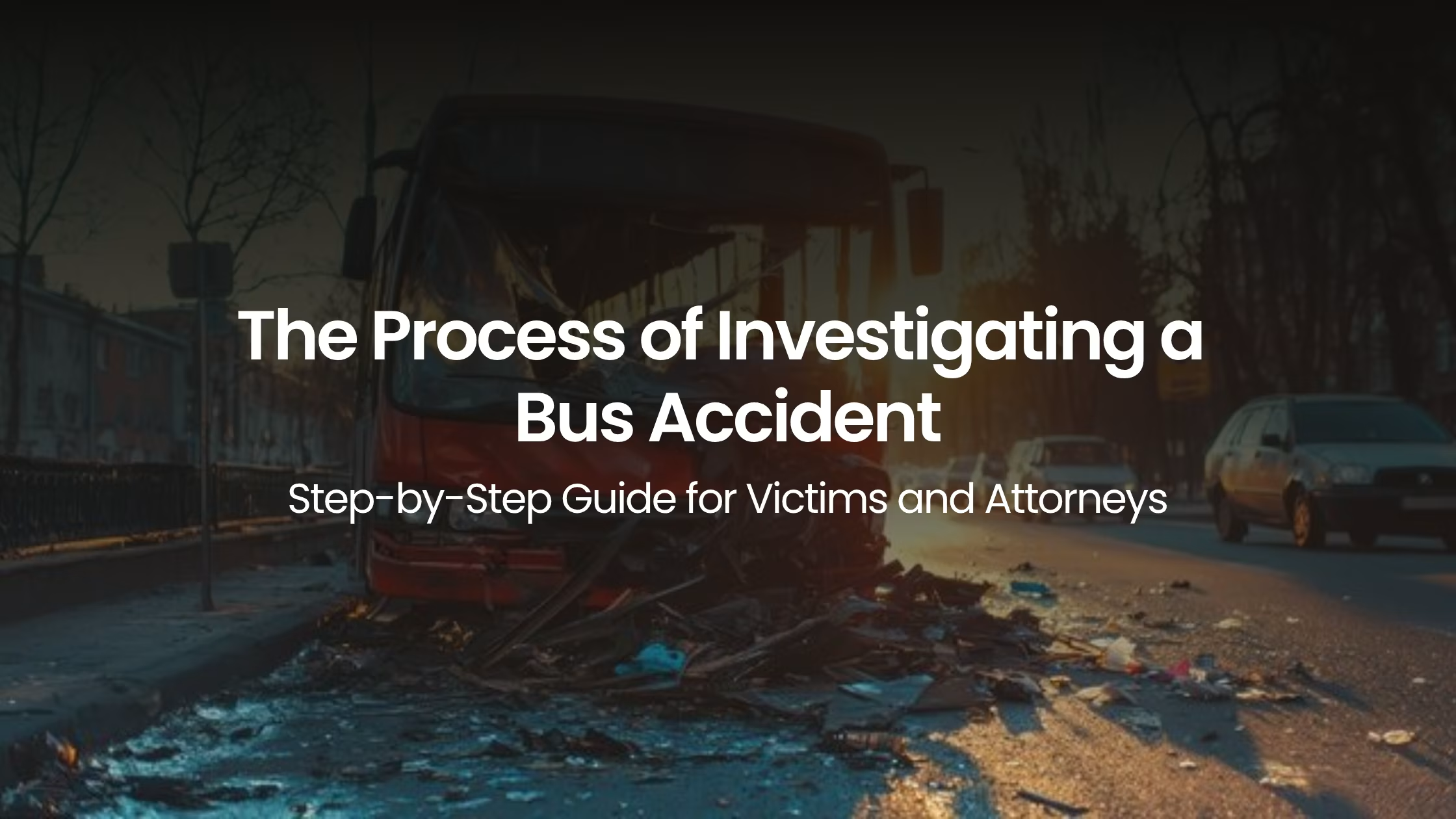Motorcycle accidents often involve far more than physical injuries, they raise complex legal battles around insurance coverage, liability disputes, and bad faith claims handling. One notable case that highlights these challenges is Clowers v. State Farm Mutual Automobile Insurance Co. (Georgia Court of Appeals, 2010).
In this case study, we’ll examine the facts, the court’s reasoning, and the broader implications for accident victims. We’ll also share our professional insights as personal injury attorneys in California and explain how cases like this underline the importance of strong legal representation when fighting insurance giants.
Case Background
In 2010, the Georgia Court of Appeals issued its opinion in Clowers v. State Farm, a lawsuit that stemmed from a motorcycle accident.
- Plaintiff: Clowers, a motorcycle accident victim
- Defendant: State Farm Mutual Automobile Insurance Company
- Core Issue: Whether State Farm acted in bad faith by refusing to pay uninsured/underinsured motorist (UM/UIM) benefits following the crash
Clowers suffered significant injuries in the collision. However, the at-fault driver had inadequate insurance coverage, forcing Clowers to turn to his own insurance policy with State Farm for compensation under his UM/UIM coverage.
State Farm denied payment, leading to a lawsuit alleging:
- Breach of contract
- Bad faith insurance denial under Georgia law
- Delay in payment despite clear evidence of damages
Court’s Ruling
The Georgia Court of Appeals in 2010 found that:
- State Farm’s denial was unreasonable given the available evidence.
- The insurer could potentially be held liable for bad faith penalties and attorney’s fees under Georgia’s insurance statutes.
- The case reinforced that insurers owe a duty of good faith and fair dealing to their policyholders, especially when the insured has already suffered catastrophic injuries.
This ruling was significant because it reminded insurance companies that policy language cannot be twisted to avoid rightful payouts.
Legal Precedents and Implications
The Clowers case is often cited in Georgia and beyond for its importance in bad faith insurance law. It clarified:
- Victims can hold their own insurers accountable, not just the at-fault driver.
- Courts will scrutinize insurers who delay or deny legitimate claims.
- Motorcycle riders, often more vulnerable to catastrophic injuries, need ironclad insurance advocacy.
Key Takeaways from Clowers v. State Farm (2010)
- Motorcycle accidents often require UM/UIM claims.
- Insurers may face penalties for wrongful denials.
- Victims must preserve medical and accident records.
- A skilled motorcycle accident attorney is essential.
Real-World Impact for Motorcycle Accident Victims
Motorcyclists face unique risks compared to other drivers:
- Less physical protection in crashes
- Higher chance of severe injuries (spinal, brain trauma, amputations)
- Greater likelihood of financial ruin without proper coverage
Cases like Clowers demonstrate how insurance companies sometimes prioritize profits over policyholders’ recovery. For victims, this means:
- Insurance battles may take months or years
- Settlement offers may be unfairly low
- Legal representation can mean the difference between financial ruin and full recovery
Professional Perspective: Why This Matters in California
Although Clowers v. State Farm was decided in Georgia, the lessons apply nationwide, including here in California.
At Ladva Law, we have seen similar scenarios where insurance companies:
- Deny valid claims without justification
- Pressure victims into low settlements
- Exploit technical loopholes to delay payment
As San Francisco-based personal injury attorneys, we emphasize the importance of:
- Documenting everything – police reports, medical bills, witness statements
- Understanding your insurance coverage – including UM/UIM clauses
- Seeking legal counsel early – before insurers take advantage of victims
Lessons for Future Claims
Motorcycle accident victims should approach their claims strategically. Based on the Clowers case, here are some practical tips:
✅ Do’s
- Contact an attorney immediately after an accident
- Review your UM/UIM policy limits annually
- Keep detailed medical and financial records
❌ Don’ts
- Accept the first settlement offer without review
- Assume your insurance company is “on your side”
- Delay filing claims or lawsuits (statute of limitations matters)
Conclusion
The 2010 case of Clowers v. State Farm remains a crucial reminder that insurance companies can and should be held accountable when they act in bad faith. For motorcycle accident victims, the ruling underscores the importance of strong legal advocacy to ensure fair compensation.
At Ladva Law, based in San Francisco, we help victims across California navigate complex personal injury claims, including motorcycle accidents, insurance disputes, and bad faith cases.
While our firm did not handle the Clowers case, we stand ready to fight for your rights with the same determination. If you or a loved one has been injured in a motorcycle accident, contact us today for a free consultation.
Don’t let insurers dictate your recovery. Let us fight for you.






